
Cuisine
Bavarian cuisine
Bavarian cuisine is a regional cuisine of Germany, centered around the state of Bavaria. It is known for its hearty, meat-based dishes, such as roast pork and sausages, as well as its beer. Bavarian cuisine is also known for its pretzels and dumplings.
Typical ingredients
Pork (such as roast pork and sausages), Potatoes, Sauerkraut, Dumplings, Pretzels, Beer
Presentation and garnishing
Bavarian dishes are often presented in a rustic, home-style manner. Garnishes may include fresh herbs, pickles, or small amounts of sauce or gravy.
Oktoberfest, the world's largest beer festival, takes place in Munich every year.
More cuisines from this region...
Swabian cuisine, Hamburg cuisine, Pomeranian cuisine, Schleswig-Holstein cuisine, Silesian cuisine, Rhenish-Hessian cuisine, Saxon cuisine, Brandenburg cuisine, Mecklenburg cuisine, Palatine cuisine
History
Bavarian cuisine has been influenced by its neighboring regions, as well as its own regional traditions. The region's beer-making tradition dates back to the Middle Ages, and it is still a major part of Bavarian cuisine today. The region's pretzels and dumplings are also world-renowned.
Cultural significance
Bavarian cuisine is an important part of the region's cultural identity. The region's beer-making tradition is celebrated with festivals and events throughout the year. The region's pretzels and dumplings are also a major part of its culinary heritage.
Health benefits and considerations
Bavarian cuisine is generally high in fat and calories, due to its use of meat, butter, and cream. However, it also contains a variety of nutrients, including protein, fiber, and vitamins.
Bavarian cuisine recipes Browse all »
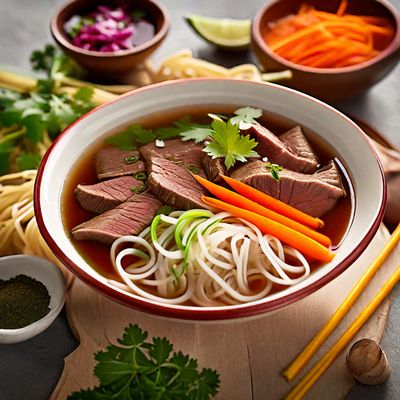
Bavarian-style Pho
Bavarian Beef and Vegetable Soup with Asian Flair

Dulce de Leche Bavarian Cream
Bavarian Dream: Creamy Dulce de Leche Delight

Bavarian Pavlova
Bavarian Dream Delight
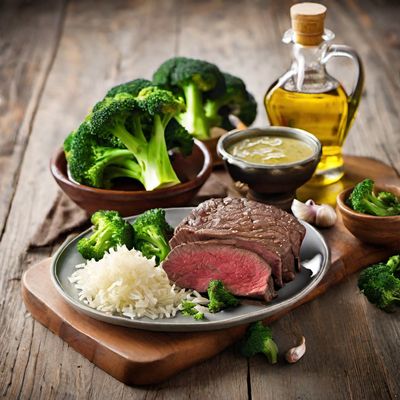
Bavarian Beef & Broccoli
Bavarian Beef & Broccoli Delight

Bavarian Cheesesteak
Bavarian Twist on the Classic Cheesesteak

Bavarian Bibimbap
Bavarian Fusion Bowl: A Twist on Traditional Bibimbap
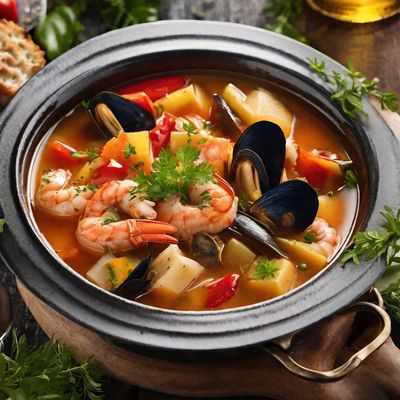
Bavarian Bouillabaisse
Bavarian Seafood Delight: A Bavarian Twist on Bouillabaisse

Bavarian-style Gamjatang
Hearty Bavarian Potato Stew with a Korean Twist

Bavarian Cordon Bleu
Bavarian Delight: Crispy Cordon Bleu with a Bavarian Twist
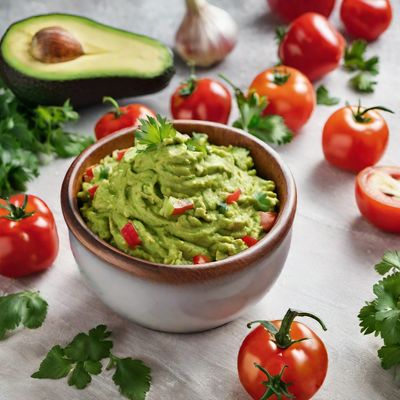
Bavarian Guacamole
Bavarian Twist on Classic Guacamole

Bavarian-style Kimchi
Bavarian Sauerkraut with a Korean Twist
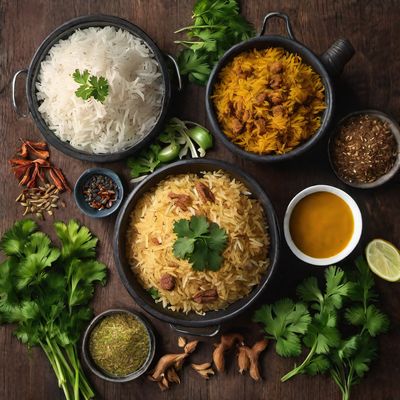
Bavarian-style Biryani
Bavarian Delight: A Fusion of Indian and Bavarian Flavors